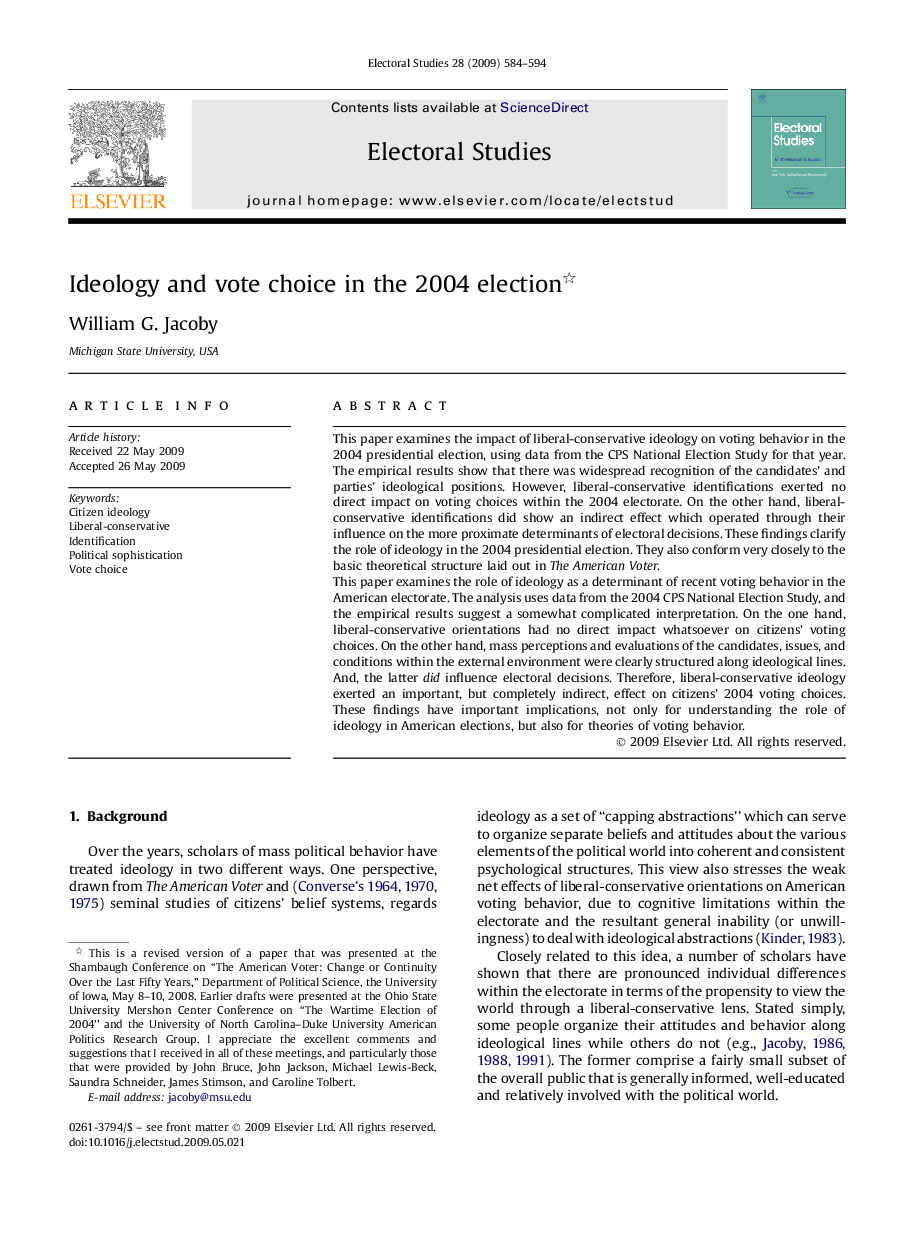| کد مقاله | کد نشریه | سال انتشار | مقاله انگلیسی | نسخه تمام متن |
|---|---|---|---|---|
| 1052186 | 946376 | 2009 | 11 صفحه PDF | دانلود رایگان |

This paper examines the impact of liberal-conservative ideology on voting behavior in the 2004 presidential election, using data from the CPS National Election Study for that year. The empirical results show that there was widespread recognition of the candidates' and parties' ideological positions. However, liberal-conservative identifications exerted no direct impact on voting choices within the 2004 electorate. On the other hand, liberal-conservative identifications did show an indirect effect which operated through their influence on the more proximate determinants of electoral decisions. These findings clarify the role of ideology in the 2004 presidential election. They also conform very closely to the basic theoretical structure laid out in The American Voter.This paper examines the role of ideology as a determinant of recent voting behavior in the American electorate. The analysis uses data from the 2004 CPS National Election Study, and the empirical results suggest a somewhat complicated interpretation. On the one hand, liberal-conservative orientations had no direct impact whatsoever on citizens' voting choices. On the other hand, mass perceptions and evaluations of the candidates, issues, and conditions within the external environment were clearly structured along ideological lines. And, the latter did influence electoral decisions. Therefore, liberal-conservative ideology exerted an important, but completely indirect, effect on citizens' 2004 voting choices. These findings have important implications, not only for understanding the role of ideology in American elections, but also for theories of voting behavior.
Journal: Electoral Studies - Volume 28, Issue 4, December 2009, Pages 584–594